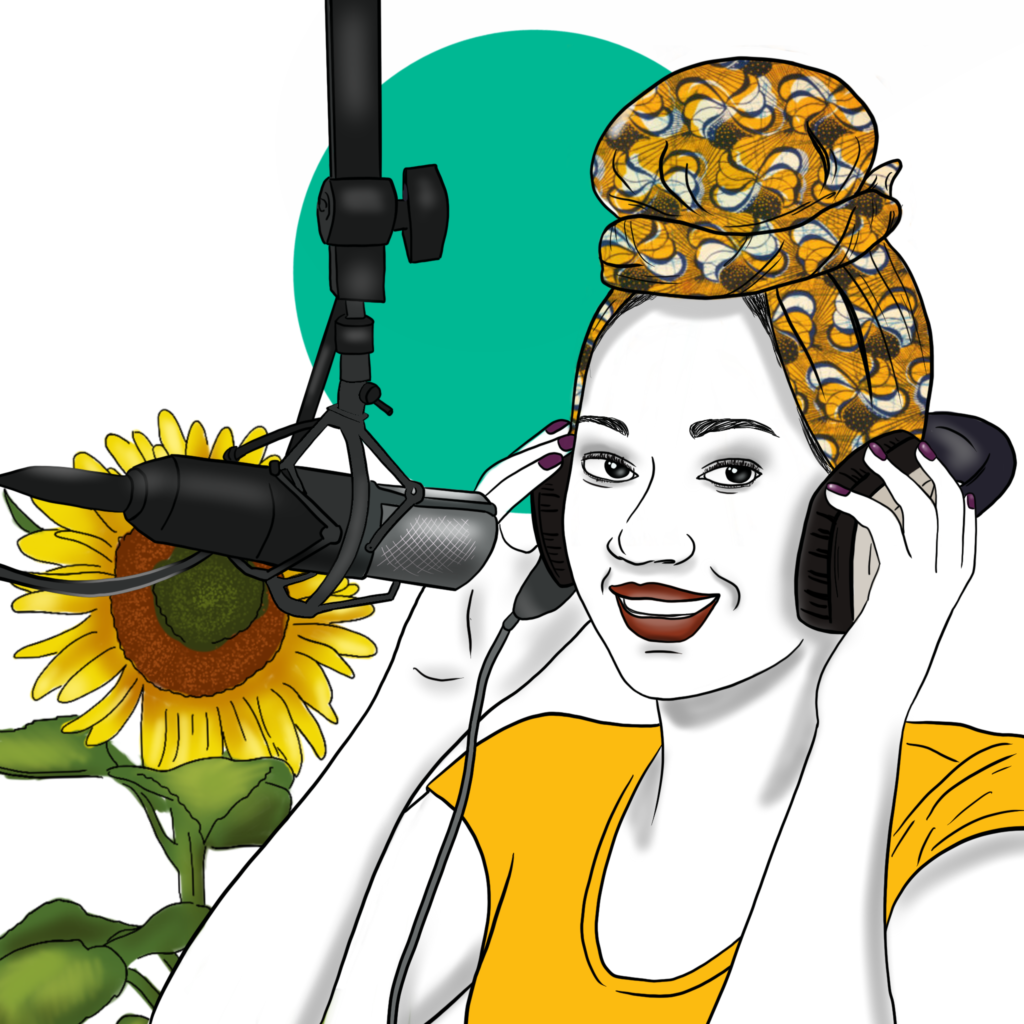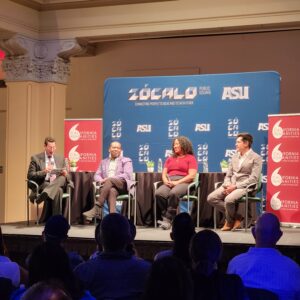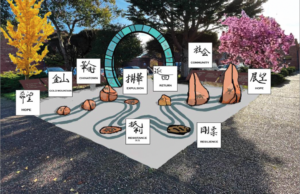

The Stoop is a podcast series co-produced and hosted by Leila Day and Hana Baba that digs into stories about blackness, race, and identity in America that are not always shared in the open. Through their podcast, the co-producers combine storytelling and journalism to share narratives about the joy, challenges, and diversity of blackness. Supported through the California Documentary Project grant program, The Stoop has won awards from the National Association of Black Journalists, Society of Professional Journalists, and The Black Podcast Awards. It is acclaimed as “a must listen to podcast” by The New York Times, CNN, Oprah Magazine, Readers Digest, Essence Magazine, Shondaland, and more.
We recently spoke with hosts Leila Day and Hana Baba as they launch The Stoop’s fifth season of new episodes that start conversations about what it means to be Black and how to speak about blackness within the African Diaspora.
You’re now 41 episodes into the series. What are a few of your most memorable moments? Which episodes would you recommend to a first-time listener?
Hana: Some of the most memorable moments for me were when we won our first award at the National Association of Black Journalists. That was huge for us. We’ve won some amazing awards since we’ve started, but it’s always amazing to be recognized by your own people.
I would recommend listening to one of the stories we did called “You Called Me African What?” It’s a good representation of the types of things we cover and how.
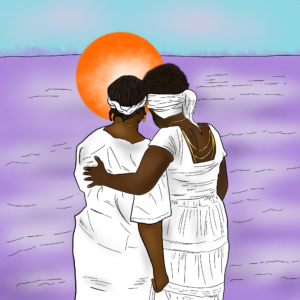 Leila: For me, one of the most memorable moments was when we were featured in the New York Times and then a flurry of other publications. We saw this huge spike in listenership, but also, we had this moment of feeling really humbled because we kind of called each other and said, wow, so many people are paying attention to Black stories now. This might be a fad, this newfound attention, but we’ve always been doing this, and it felt good for both of us to kind of acknowledge that and be like…keep on keeping on.
Leila: For me, one of the most memorable moments was when we were featured in the New York Times and then a flurry of other publications. We saw this huge spike in listenership, but also, we had this moment of feeling really humbled because we kind of called each other and said, wow, so many people are paying attention to Black stories now. This might be a fad, this newfound attention, but we’ve always been doing this, and it felt good for both of us to kind of acknowledge that and be like…keep on keeping on.
I would recommend Gullah Geechee. It’s a good example of how we use personal story to connect to journalistic stories, and it features my Dad’s voice in it, so I’m biased.
As a podcast about blackness, race, and identity in America, what do you see as the importance of telling these stories right now?
Leila: I think that it’s not about right now, it’s always about these stories, and it’s up to you if you want to listen or not. Like I feel I listen to stories about other cultures, I listen to older white men talk all the time on the radio. I also listen to stories about people that don’t look like me and don’t live like me. I think that it should be a given that you would want to listen to these stories, not just because they are Black stories but because you are curious and an interesting human.
Hana: There’s definitely sparked interest in Black stories, but that question is more toward white listeners because I think a lot of black and brown people are already listening to these types of stories, but it’s a whiter audience that is discovering us. Which is great; we say come to The Stoop, hang out, listen. We love a good listener.
With such a broad range of subject matter, how do you approach choosing topics for The Stoop?
Leila: One of the things we always remind ourselves of is who our audience is. We are both from public radio backgrounds, and there’s a lot of over-explaining we had to do. Now, we say, we want to talk about Black things that we don’t talk about often in our community. We want things that are “stoopy.”
Hana: We have to keep it ‘stoopy.’ We often say here’s an interesting story, but how can we talk about it in a way that hasn’t been talked about before? If it’s an article, we start in the comments section. What are people bringing up in relation to this issue? Where’s the tension, and why is it there? We like to deconstruct it and turn it around to make you think deeper about it and why it exists in the first place.
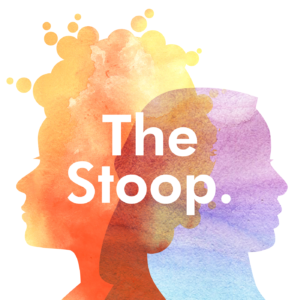 Can you tell us about The Stoop’s audience? Did you have a specific audience in mind for the series, and why? Is the audience you have the one you expected?
Can you tell us about The Stoop’s audience? Did you have a specific audience in mind for the series, and why? Is the audience you have the one you expected?
Leila: We always said The Stoop is made for people who look like us and talk about these things or think they want to talk about these things but can’t. We always had a Black audience in mind.
Hana: And knowing that has helped us, framing our audience. Because the beautiful thing is that a lot of our listeners are white as well, and we love what these conversations are bringing up in curious minds.
Finally, what do you hope people will take away from the series?
Leila: I think people take away that there are many ways to be Black, that it’s ok to be vulnerable, and it’s ok to bring these things out into the open.
Hana: For ages, we’ve been conditioned to believe that we shouldn’t bring up some of these “Black secrets,” but the reality is that we need to talk about these things. And if there’s a way to do it artfully and respectfully, and always with some funky music, it’s golden. We love that.
To listen to episodes of the Stoop, visit thestoop.org. The Stoop is supported by California Humanities through a California Documentary Project grant.

